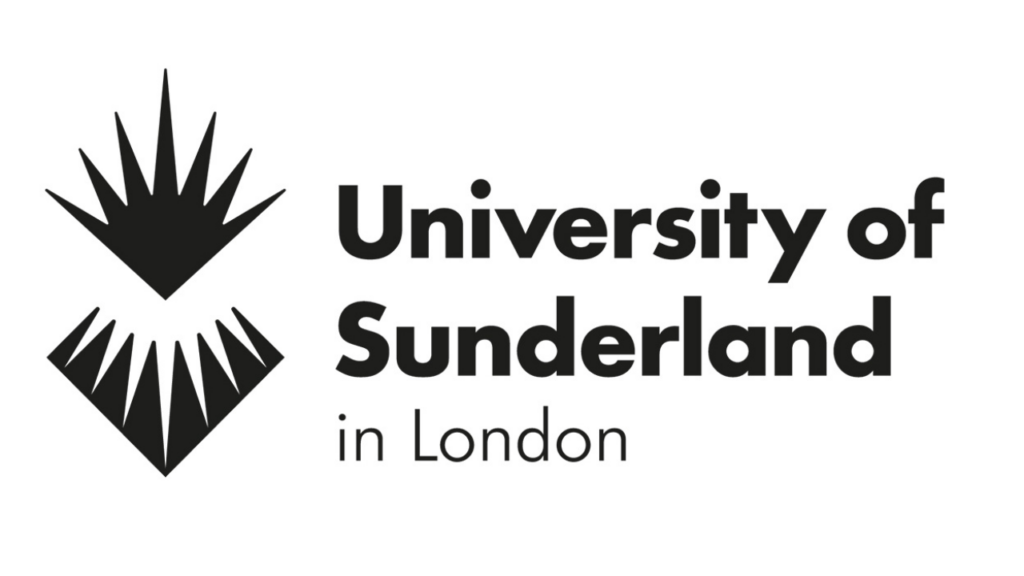United Kingdom

The United Kingdom is a top destination for international students, offering a blend of world-class education, diverse cultural experiences, and modern amenities. As the home of the English language, the UK provides unparalleled opportunities for students to enhance their English skills, which are crucial for global careers in business, technology, and education. According to the 2024 US News World Report, the UK is the world’s 8th best country to live in.
Also, according to the Times Higher Education (THE) World University Ranking 2024: The University of Oxford in the UK is ranked 1st, followed by Stanford University in the United States, Massachusetts Institute of Technology in the United States, and Harvard University in the United States.
The UK is composed of four distinct nations: England, Scotland, Wales, and Northern Ireland, each with its own unique identity, stunning landscapes, and vibrant cities. The multicultural environment is one of the UK’s greatest strengths. This diversity enriches the academic experience, creating a global network of peers and a welcoming atmosphere for people of all cultures and faiths. In addition to excellent education, the UK offers the chance to explore Europe with ease. Affordable and efficient travel options, such as the Eurostar and budget flights, connect students to major European cities in no time. The UK’s diverse climate, ranging from mild winters to long summer days, adds to the appeal.
While studying in the UK, students can enjoy a high standard of living, with modern transport systems, reliable healthcare, and a commitment to student welfare. The shorter course durations in the UK often mean lower living costs compared to other countries, making it an attractive option for international students.
Overall, the UK is an ideal place to study, live, and explore, offering academic excellence, rich cultural experiences, and a supportive environment for personal and professional growth.
Why choose the United Kingdom?
The UK offers a wealth of opportunities and benefits for international students. Here’s a breakdown of why studying in the UK could be a great choice:
1. Prestigious Universities
UK universities are globally respected. According to the QS World University Rankings 2024, several UK institutions are ranked among the top 50 in the world. These include:
o University of Oxford
o University of Cambridge
o University of Edinburgh
o University of Manchester
o King’s College London
o London School of Economics and Political Science
These universities are renowned for their research and development, medicine, arts, and humanities courses. With over 100 universities in the UK, international students have plenty of options to find the best fit for their chosen field of study.
2. Diversity
The UK is incredibly diverse. Approximately 14% of the population is born abroad, contributing to a multicultural atmosphere. In cities like London, where 35% of the population is born outside the UK, students can immerse themselves in a variety of cultures. It’s also easy to stay connected to your own culture through community events and restaurants, which can be helpful in easing homesickness.
3. Support for Overseas Students
The UK offers substantial support for international students. Universities have dedicated offices to assist with questions related to tuition, housing, and academics. Additionally, the UK Council for International Student Affairs provides resources on topics like mental health, housing, and immigration. There are even scholarships and financial aid options available for international students.
4. Improved English Skills
Studying in the UK is a great way to enhance your English skills. Immersing yourself in the country where the language originated allows you to practice and refine your language abilities. Additionally, you’ll be exposed to various British accents, as well as accents from other countries, providing a rich listening experience that can improve your overall language proficiency.
5. Job Opportunities After Graduation
The UK government has introduced a Graduate route, allowing international students to stay for up to two years after completing their undergraduate or master’s degrees (three years for PhD graduates) to look for work. There is also a demand for professionals in areas like healthcare, engineering, and teaching, where the UK is facing a shortage of skilled workers. This means international students may find it easier to find employment in these fields.
6. Global Opportunities
After studying in the UK, you can explore global opportunities in a number of ways. Not only your qualifications help you find jobs in the UK but also globally as UK graduates are highly preferred by employers worldwide.
7. Quality of Life
Living in the UK offers a high quality of life. According to the OECD Better Life Index, people in the UK are generally satisfied with life, with the country ranking above average in areas such as jobs, education, and social connections. These factors contribute to a positive environment for international students.
8. Fun and Exploration
The UK is home to vibrant student cities like London, Manchester, and Glasgow. Students can explore historic sites, visit world-class museums, enjoy the pub culture, and discover picturesque towns and stunning landscapes. Living in the UK offers a fun, dynamic experience, where you can make lifelong memories while meeting friends from around the world.
In conclusion, studying in the UK provides an excellent educational experience, diverse cultural opportunities, and a supportive environment for international students. Whether you’re looking for academic excellence, career prospects, or a chance to explore new cultures, the UK has much to offer.
Why is the United Kingdom an ideal destination for Nepalese Students?
The UK is an ideal destination for Nepalese students for a variety of reasons, ranging from high-quality education to cultural diversity and work opportunities. Here are some key reasons why the UK stands out for Nepalese students:
1. World-Class Education System
- Reputation: The UK is home to some of the top universities in the world, such as the University of Oxford, University of Cambridge, Imperial College London, and London School of Economics (LSE). These institutions offer globally recognized degrees that enhance students’ career prospects.
- Wide Range of Courses: Whether it’s engineering, medicine, business, arts, or social sciences, the UK offers a diverse range of courses, allowing students to find programs that suit their interests and career goals.
- High Standards: UK universities are known for their high academic standards, advanced research opportunities, and rigorous evaluation systems, ensuring that graduates are well-equipped for the job market.
2. Shorter Duration of Programs
- Undergraduate Courses: Typically, undergraduate programs in the UK take three years to complete, compared to four years in many other countries, including the USA. This allows students to graduate sooner and start their careers earlier.
- Postgraduate Courses: Master’s programs in the UK generally last one year, unlike two years in some other countries. This shorter duration reduces the overall cost of studying and living in the UK.
3. Cultural Diversity and Global Network
- Multicultural Environment: The UK is a melting pot of cultures, with students from all around the world. Nepalese students find themselves in a vibrant, diverse community where they can learn about different cultures while also sharing their own heritage.
- Networking Opportunities: Studying in the UK offers the opportunity to network with international students, professors, and professionals, which can be valuable for future career growth.
4. Work Opportunities and Post-Graduation Visa
- Part-Time Work: As a student in the UK, Nepalese students are allowed to work part-time (up to 20 hours per week during term time and full-time during breaks), which helps them support themselves financially and gain valuable work experience.
- Post-Graduation Work Visa: The UK offers a two-year post-graduation work visa (for students who complete a degree at the undergraduate level or higher). This provides students with the opportunity to work and gain practical experience in the UK after completing their studies.
5. Affordable Education (Relative to Other Destinations)
- Lower Tuition Fees: Compared to countries like the USA or Australia, the UK often offers more affordable tuition fees for international students, including Nepalese. Moreover, the shorter duration of courses helps reduce overall educational expenses.
- Scholarships: There are numerous scholarship opportunities available for Nepalese students, including government scholarships, university-specific scholarships, and private funding sources, which can help reduce the financial burden.
6. English Language
- Language of Instruction: English is the primary language of instruction in the UK, and as English is the second language in Nepal, many Nepalese students feel comfortable studying in the UK. It also helps improve English proficiency, which is a highly valued skill globally.
- English Language Support: For those who need additional language support, universities in the UK often offer English language programs or preparation courses to help students improve their academic and conversational English.
7. Safe and Supportive Environment
- Safety: The UK is considered one of the safest destinations for international students. Many cities, including London, Manchester, and Edinburgh, are renowned for their student-friendly environments.
- Support Systems: UK universities provide extensive support services to international students, including orientation programs, career advice, counseling, and academic support, helping them adapt to life in the UK.
8. Gateway to Europe
- Travel Opportunities: The UK’s location makes it easy for students to travel around Europe. Whether it’s for academic conferences, vacations, or exploring different cultures, the proximity to European countries is a significant benefit for international students.
9. Alumni Success
- Many successful professionals, including those from Nepal, have studied in the UK, which creates a strong and active alumni network those Nepalese students can tap into for mentorship, advice, and career opportunities.
In summary, the UK offers Nepalese students a combination of high-quality education, work opportunities, cultural exchange, and a supportive environment, making it a popular and ideal destination for higher studies
How much money is required to study in the UK from Nepal?
The cost of studying in the UK varies based on the university, program, and location. Here’s a breakdown:
Tuition Fees
- Undergraduate programs: £11,400–£38,000 per year.
- Postgraduate programs: £9,000–£30,000 per year.
Living Costs
- Students can expect living expenses of £1,300–£1,400 per month in London or£9,000–£1,300 per month in the rest of the UK , covering accommodation, food, transportation, and personal expenses.
- Costs may vary depending on whether you live in London or other cities and individual lifestyle.
Intakes and Application Deadlines
UK universities generally have two primary intakes:
- September Intake: The main intake with a wide variety of programs available.
- January Intake: A secondary intake for selected programs.
Some universities may also offer a May intake. Deadlines vary, so it’s essential to check the specific dates for your chosen program.
English Proficiency Exam to Study in UK
International students from non-English speaking countries, like Nepal, who wish to study in the United Kingdom (UK) are typically required to provide proof of their English language proficiency.
In the UK, several English proficiency tests are accepted for university admissions, visa applications, and other purposes. Here are the main tests widely recognized:
1. IELTS (International English Language Testing System)
- Type: Academic and General Training
- Purpose: Academic purposes, immigration, and visa applications.
- Score Requirements: Typically ranges from 6.0 to 7.5 (or higher) for university admissions, depending on the course.
- Note: This is one of the most widely accepted tests in the UK.
2. PTE Academic (Pearson Test of English Academic)
- Type: Computer-based test
- Purpose: Academic purposes, student visa applications.
- Score Requirements: Typically between 50 and 70 (out of 90) for university admissions.
- Note: Gaining increasing popularity in the UK.
3. Cambridge English Qualifications
- Types: Various tests, including:
- C1 Advanced (CAE)
- C2 Proficiency (CPE)
- B2 First (FCE)
- Purpose: Academic, professional, and visa purposes.
- Score Requirements:
- C1 Advanced: Typically accepted with scores of around 180-190.
- C2 Proficiency: Typically accepted with scores of around 200-220.
- B2 First: Some universities accept this for undergraduate admissions.
- Note: These qualifications do not expire, unlike IELTS or TOEFL.
4. Duolingo English Test
- Type: Online test
- Purpose: Academic purposes.
- Score Requirements: Generally accepted by some UK universities as an alternative to IELTS or TOEFL (score requirements vary by institution).
- Note: This test has gained traction during the COVID-19 pandemic as a flexible option.
Each institution may have specific requirements for the test scores, so it is important to check with the university or organization to confirm their accepted tests and score thresholds.
Colleges/Universities
Our Partners for UK















